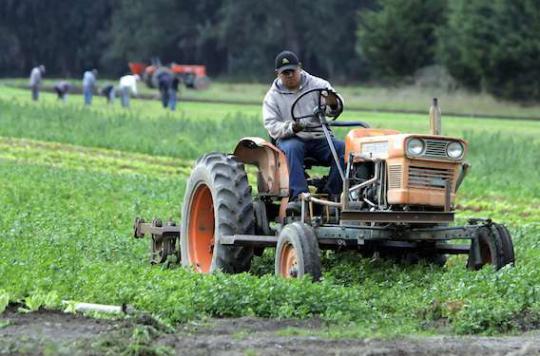Exposure to glyphosate does not increase the risk of cancer. The European Food Safety Agency (EFSA) has just delivered its conclusions on the matter.

The carcinogenic risk of glyphosate is “unlikely”. This is the astonishing conclusion of the European Food Safety Agency (EFSA), delivered on October 12. The health authority is responsible for reassessing the risk presented by this widely used herbicide, particularly in Roundup. And she does not seem to consider that it presents any danger to human health.
A maximum exposure threshold
Experts from EFSA and member states of the European Union have come together for this glyphosate assessment. All but one agree that there is insufficient data in humans to establish a causal link between exposure to glyphosate and the development of cancer. “It is unlikely that this substance is carcinogenic”, concludes in a statement Jose Tarazona, Director of the Pesticides Unit at EFSA. The report also does not establish a genotoxic risk – that is, DNA damage.
This conclusion does not prevent the Agency from setting a maximum exposure threshold of 0.5 mg per kilogram of body weight. It also proposes a new safety measure that will strengthen controls on glyphosate residues in food. A very cautious attitude.
The report of the International Agency for Research on Cancer (IARC) is undoubtedly no stranger to these precautions. The 17 experts who signed it concluded, in March 2015, that glyphosate is a “probable carcinogenic” product for humans. The evidence is limited, but suggests a role in the development of Hodgkin lymphoma. “The evaluation takes into account a large body of data, including a number of studies that have not been evaluated by the IARC, which is one of the reasons why the conclusions are different”, is justified l ‘EFSA in a statement.
Controversial decisions
But the European Agency is regularly criticized for its decisions … and the conflicts of interest that plague it. In January, she defends bisphenol A – the endocrine disrupting properties of which are however well known. According to the agency’s experts, the current exposure levels are not worrying… to the point that they wanted to lower the thresholds!
Same surprising conclusion in the controversial case of aspartame: no risk of cancer, behavioral or cognitive disorders, nor for the development of the fetus in the case of pregnant women. The Agency brushes aside the concerns.
Still, the conclusions of EFSA will be used by the European Commission in its decision whether or not to maintain glyphosate in the list of active substances authorized in Europe. On the French side, the Minister of Ecology, Ségolène Royal, took the bull by the horns: on June 17, she announced the ban on the self-service sale of weedkillers containing glyphosate – including Roundup. An amendment to the energy transition law was tabled in July in the Senate. If it is voted, the measure would be active at 1er January 2016.

.















